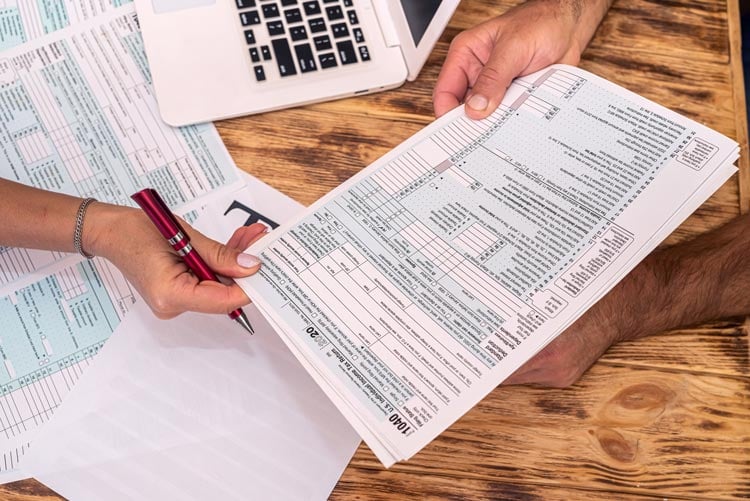Page 24 231 - 240 of 425
What is a Simultaneous 1031 Exchange?

Timing is a crucial element throughout the 1031 exchange process.
How Often Does the IRS Audit 1031 Exchanges?

The 26 U.S. Code § 1031 – aka the 1031 exchange or like-kind exchange – can be a good strategy to help defer capital gains taxes on the sale of real property. But as mentioned in a previous blog, very stringent rules exist when it comes to conducting this type of exchange. Playing fast and loose with in-stone deadlines, property values, or other factors could wave a red flag at the IRS.
Does a 1031 Exchange Need to Be in the Same Name?

When we discuss the specific provisions governing the execution of a 1031 exchange, sometimes we neglect to mention that the reason the IRS allows this transaction is in recognition of the ongoing nature of the investment. This fact is worth considering since the IRS created some rules to test that status. For example, the deadlines for identifying the replacement property and consummating the acquisition can demonstrate that the taxpayer is traveling down a path rather than completing one investment and engaging in another. Similarly, the limitation on eligibility to “like-kind” investments is a testament to the ongoing endeavor. The IRS further upholds this condition by requiring the taxpayer's identity to remain the same.
What is a Starker Exchange?

Like most tax topics, the 1031 exchange has a history of changes, primarily due to various legislative and judicial actions. The essential foundation of this tax-deferral strategy is that when investors reinvest the proceeds from selling an asset, they extend the original investment rather than taking their profit and transforming it into spendable cash. As a result, the IRS allowed investors to trade one property for another without paying the applicable capital gains tax.
What is the Federation of Exchange Accommodators (FEA)?

For real estate investors planning to use a 1031 exchange to defer capital gains and depreciation recapture taxes, it’s vital to follow the rules closely to avoid disqualification of the transaction. The 1031 exchange is a potentially valuable deferral tool, so the IRS expects full and transparent compliance with the regulations. Prominent among the requirements are the following:
How Does an Improvement Exchange Work?
.jpg?width=750&height=392&name=exchange-881542122%20(2).jpg)
There’s been plenty written about the 26 U.S. Code § 1031—Exchange of Real Property Held for Productive Use or Investment. When used correctly, the like-kind exchange allows you to swap your relinquished property into a replacement one of greater or equal value. This allows you to defer capital gains taxes on the relinquished property.
Do 1031 Exchanges Get Audited?

Any tax return is subject to audit by the IRS. However, with limited resources constraining how many audits it can conduct, the IRS likes to focus on returns that show some potential (from the IRS perspective) of hitting pay dirt. As a result, the IRS audits fewer than four of every 1000 returns. Eighty-five percent of those audits are simple computer-generated requests for additional documentation. However, it's worth noting that the 2022 Inflation Reduction Act included funding for increased enforcement so that the numbers may change in the future.
Do You Need to File Form 8824 for a Reverse Exchange?

Moving quickly in a hot real estate market can mean the difference between getting a great property and a mediocre one. A 1031 exchange is a way to defer taxes on capital gains when a property is sold. However, a 1031 requires first selling your original property before you can buy the new property. That’s because a 1031 exchange uses proceeds from selling your existing property to buy the new property.
Can You Use a 1031 Exchange to Pay Off Debt?

To take full advantage of 1031 exchange tax deferral benefits, investors must follow a number of rules. Some of these rules outline the use of proceeds for paying off debt. Investors can’t use proceeds to pay off debts such as credit cards, car loans, or other personal loans. However, some debts can be paid off as long as 1031 exchange debt restrictions are followed.
What Does Adjusted Basis Mean on Form 8824?

The adjusted basis of an investment property is the basis after subtracting expenses and adding improvement-related costs. Form 8824 is used to file like-kind exchanges. The basis is a requirement for form 8824. The basis of an investment property is a little different than the basis used for properties in a 1031 exchange. In this article, we’ll look at what a basis means for form 8824.
Page 24 231 - 240 of 425


